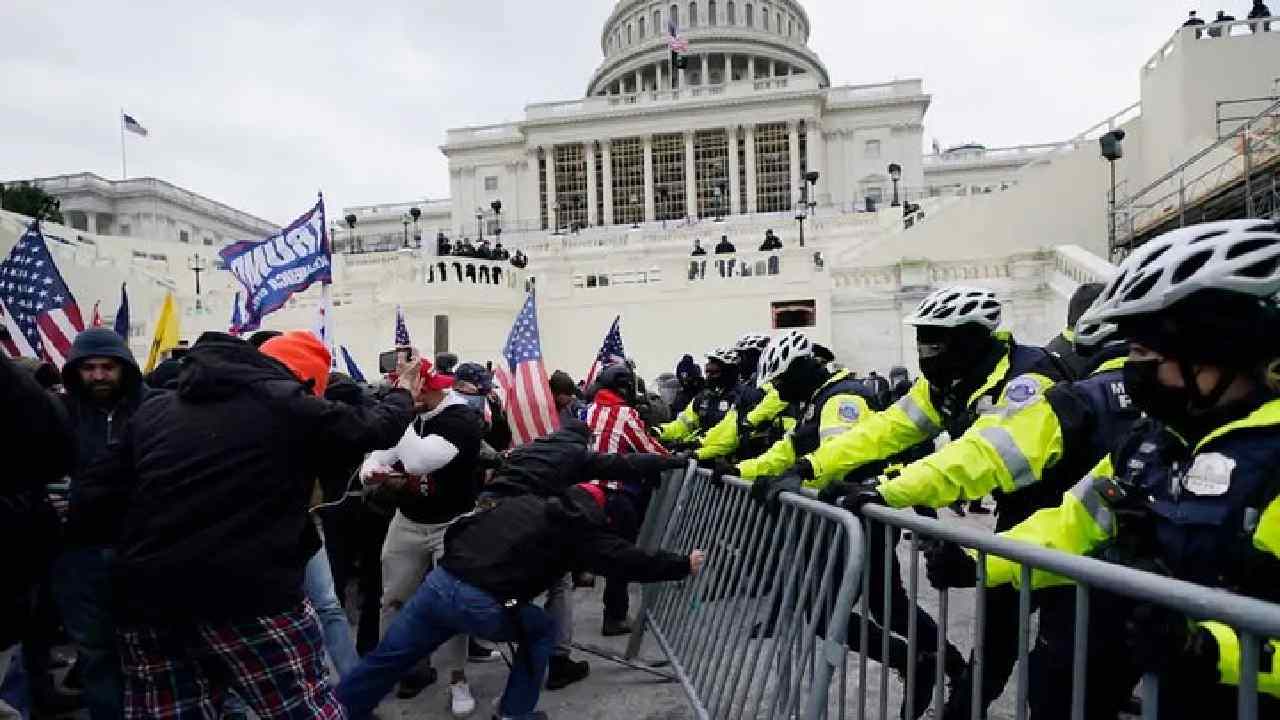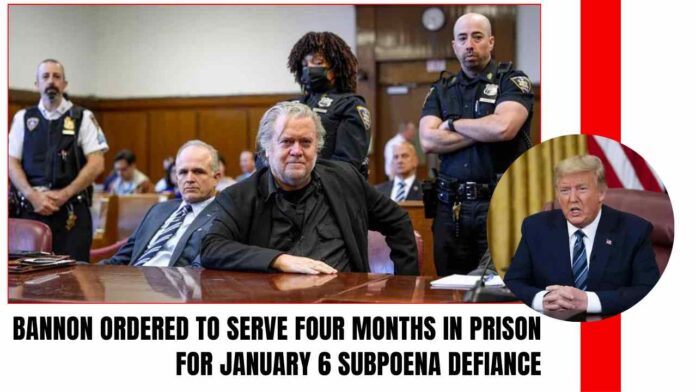Steve Bannon, a close ally of former President Donald Trump, has been ordered to report to prison by July 1 to serve a four-month sentence. The decision was taken by Judge Carl Nichols in Washington, D.C., following Bannon’s unsuccessful appeal against his conviction of contempt of Congress.
Background of Steve Bannon case

In July 2022, Steve Bannon was found guilty of two counts of contempt of Congress. These charges arose from his refusal to comply with a subpoena issued by the House committee investigating the January 6 Capitol riot. Despite his conviction, Bannon’s sentencing was delayed as he appealed the decision. However, a federal appeals court recently upheld his conviction, leading to his prison sentence taking effect.
Judge Nichols’ Ruling for Steve Bannon

Judge Nichols revoked Bannon’s bail, stating there was no legitimate reason to delay sentencing following the appeals court’s ruling. Bannon has the option to seek a further stay of the order, which could potentially delay his prison term if higher courts decide to review his case.
Steve Bannon’s Defense and Legal Arguments

Bannon’s defense has consistently argued that he acted on the advice of his legal team, believing he was protected by executive privilege declared by former President Trump. His lawyers say Bannon did not intentionally break the law, but rather followed legal instructions given to him by his attorney at the time.
Bannon’s current attorney, David Schoen, passionately defended his client during the court hearing. Schoen argued that Bannon genuinely thought he was complying with the law and called criticism of the decision unjust. He expressed his intention to appeal to the Supreme Court if necessary, arguing that sending Bannon to prison under these circumstances undermines the legal system.
Statements from Bannon and his legal team

After the verdict, Bannon did not change his stance. Outside the courthouse, he told reporters, “I have great lawyers, and we will go all the way to the Supreme Court if we have to.” Bannon reiterated his stance, emphasizing that he is confident in the legal battle ahead and will not be silenced by imprisonment.
Prosecutors’ position
Federal prosecutors, including Assistant US Attorney Molly Gaston, have argued that Bannon’s refusal to comply with the subpoena was a clear violation of the law. They highlighted that Bannon prioritized his loyalty to Trump over lawful compliance. Prosecutors had initially sought a six-month sentence and a $200,000 fine for Bannon, but the court settled on a four-month sentence and a $6,500 fine.
Context and comparison
Bannon’s case is not unique among Trump allies. Another former Trump adviser, Peter Navarro, also received a four-month prison sentence for contempt of Congress related to the January 6 investigation. Navarro began serving his sentence earlier this year after his appeal was denied.
Conclusion
Steve Bannon’s legal battle is an important chapter in the ongoing fallout from the January 6 Capitol riot. His case highlights contentious issues involving executive privilege and legal compliance in the context of congressional investigations. As Bannon prepares to go to prison, his case remains a powerful symbol of the broader legal struggles faced by those involved in the events surrounding January 6.
Bannon’s upcoming imprisonment is a pivotal moment in the search for accountability for actions taken during one of the most tumultuous periods in recent American history. The legal theories and defenses raised in his case will likely continue to influence discussions on the limits of executive privilege and the rule of law in the United States.
Steve Bannon crying outside of the courthouse after being told to go to prison by a Trump-appointed judge for dodging a Congressional subpoena is delicious.
🍿🍿🍿🍿🍿pic.twitter.com/IVnlFwohtI
— Art Candee 🍿🥤 (@ArtCandee) June 6, 2024


